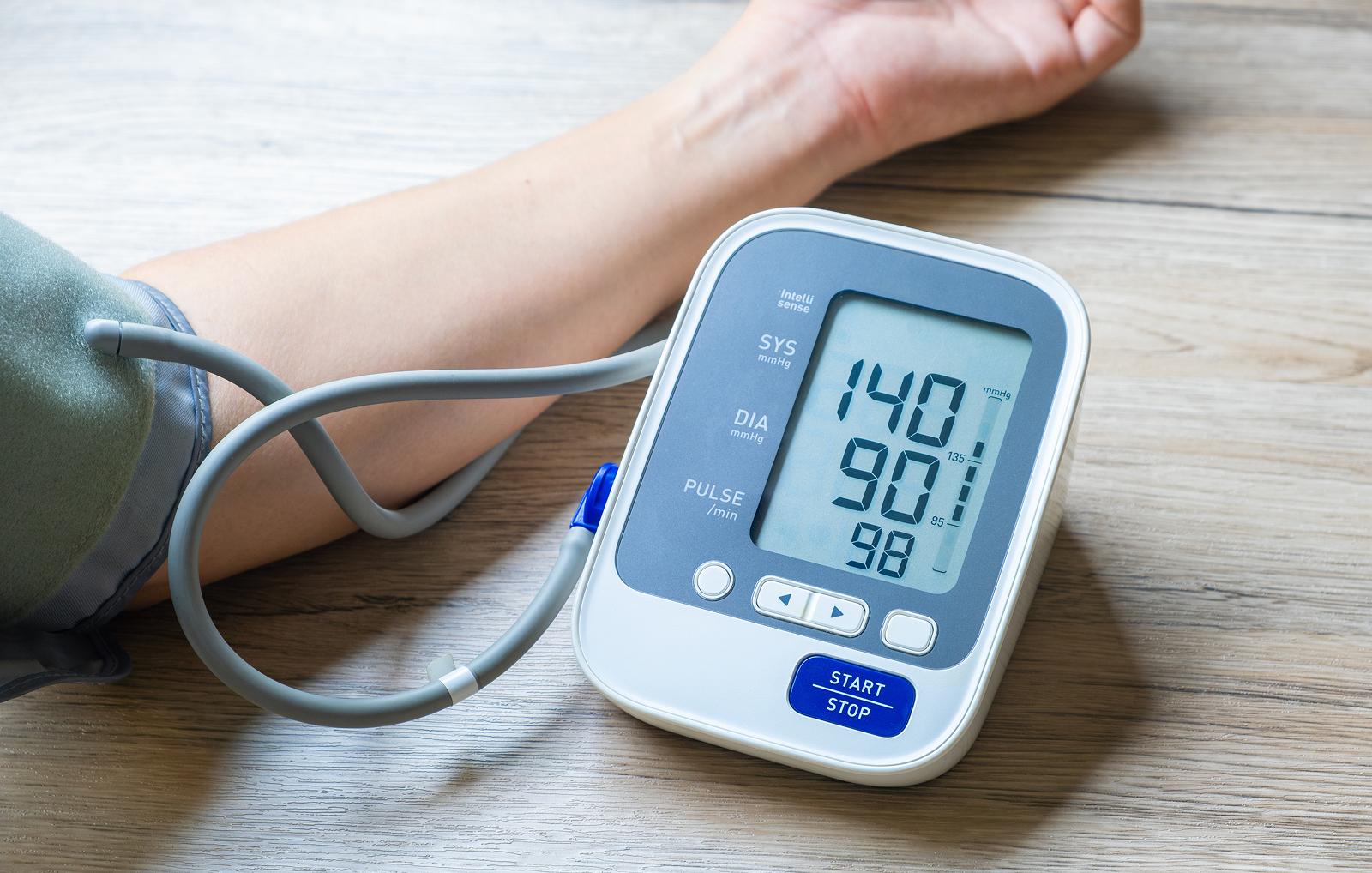
If left untreated, this very common condition increases your risk of serious problems such as heart attacks and strokes.
Hypertension rarely has noticeable symptoms. Many people will not know they have it. Around 1 in 4 adults in the UK have high blood pressure.
Your arteries need a certain amount of pressure to carry blood from your heart to your brain and the rest of your body. This force is known as blood pressure.
Everyone’s blood pressure will be different. It is also normal for it to go up and down throughout the day and when you move or exercise.
Blood pressure is measured using two numbers. The first (or top) number is known as systolic pressure. The second (or bottom) number is called diastolic pressure.
This is what people are referring to when you hear them say, “One twenty over eighty” which looks like 120/80 when written out.
Blood pressure is measured in millimetres of mercury (mmHg).
Generally speaking, the ideal blood pressure is between 90/60mmHg and 120/80mmHg. For people over the age of 80, the ideal blood pressure is below 145/85mmHg. It is higher for the over-80s because arteries stiffen as we age. This is normal.
Hypertension is the medical term for when your blood pressure is always higher than it should be, even when you are resting. It is diagnosed when your blood pressure is above 140/90, or 150/90 if you are over the age of 80.
High blood pressure often has no symptoms. If left untreated, it can lead to severe complications such as heart disease, kidney disease or strokes.
Anyone can have high blood pressure. There is often no specific reason or cause, but most people develop it as a result of their lifestyle and diet.
You might be more at risk of hypertension if you:
High blood pressure puts extra strain on your blood vessels, heart and other organs such as the brain, kidneys and eyes.
If untreated, hypertension can lead to:
For many people, making lifestyle changes can reduce blood pressure. These include:
There are also medicines available to help keep your blood pressure under control. Among the common medicines that a doctor may prescribe to you are:
The medicine recommended for you will depend on how high your blood pressure is, your age and your ethnicity.
For many people, high blood pressure goes unnoticed as the symptoms are not obvious. This is why it’s so important to get your blood pressure checked regularly.
If your blood pressure is high, you may notice the following:
If you are experiencing any of these symptoms and your blood pressure is high, seek medical advice or call NHS 111.
Disclaimer
This article is for educational purposes only and should not be used as a substitute for medical advice. Always speak to your doctor, nurse or pharmacist about your individual care. The information reflects NHS and NICE guidance at the time of publication.